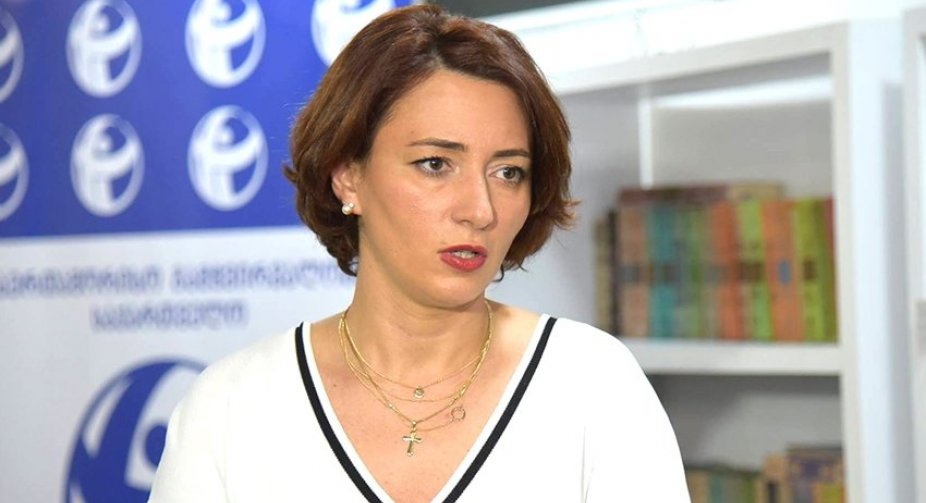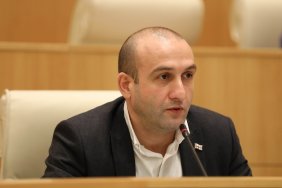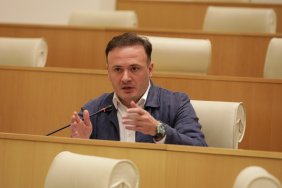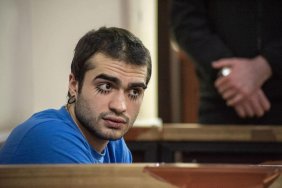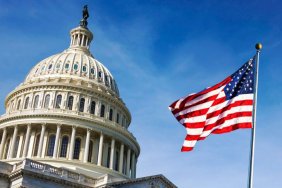"Because of frequent attacks on journalists and their crews, we are afraid that the safety of journalists may not be protected on the October 2 municipal election day.”
Transparency International Georgia Executive Director Eka Gigauri has spoken with Front News on pre-election violations, recent governmental decisions, attacks on NGOs and media, and other pressing issues.
Q. The Georgian Dream government has refused to receive the EU financial aid and to fulfil its obligations. What is your attitude towards the issues?
A. We have to live in a sad reality. To be sincere, it was a bit unimaginable for me that any government of the country would have dared to publicly refuse the support coming from our western partners. Our budgetary resources are not sufficient to improve the living conditions of our people who have to live in poverty. Refusing EU financial assistance means that we are leaving our country without a critical resource. The key reason why the Georgian government acted in this way was that it wished to maintain influence on the court system. They do not want to reform the field which faces serious problems and that is admitted by everyone. The messages which are being spread currently, including by the ruling party, that Europe is somehow trying to control the Georgian judiciary, are lies. The EU supports the Georgian citizens and wishes the people living in the country to have the court system like in Germany, France or in many other European countries. This is the EU goal and it has been ensuring the financial support for this for many years on. Now it is also important for them to see the result. However, we have no result.
Q. Should we wait for steps taken backwards from the country’s Euro-Atlantic path, or any threats to the EU-Georgia relations, including visa liberalisation?
A. As of now the EU-Georgia visa free agreement is not at risk. Our foreign partners are well aware that the majority of the country’s population supports European integration. If the government proceeds with taking such steps or rhetoric, it will go against the will of the majority of the Georgian people. All recent polls indicate the firm support for Georgia's Euro-Atlantic course. The wish and the fight of the people is significant. However, the government should ensure the country’s EU membership. It is the government members who speak with foreign partners on behalf of the Georgian people. Therefore, it is important for the government to be a reliable partner. Not only the Georgian government’s refusal on the EU loan, but also the ruling party’s backing out of the April 2021 EU-mediated agreement point at the unreliability of the government in the eyes of the country’s foreign partners which, of course, affects the state interests. If the government continues such moves, the EU will review its policy towards us and this will be very negative for Georgia.
Q. What’s your view on the decision of the United National Movement opposition party to sign the EU-mediated agreement after a four-month standoff?
A. We believe that all parties should have signed the agreement. It was important for Georgia’s democratic development. We welcome that the UNM joined the agreement now. However, it would have been more acceptable if the party did so at the initial stage.
Q. It now seems that that agreement became the reason for disagreement between the ruling party and the opposition and that they are unable to sign agreements at the same time. What is your opinion about this?
A. The large gap and disagreement between political parties have their reasons. However, such a high rate of polarisation is damaging for the country. They are divided and they do not listen to one another. It is difficult for our partners to understand this. The post-Soviet countries, which are currently the EU member states, speak about the experience. One day, their political spectrum agreed to act based on state interests first. They put aside their political interests and goals and began acting according to the interests of their people. We should also act in this way. Unfortunately,our political spectrum is unable to do this now. Of course, these have their objective reasons. However, the reality is unbeneficial for Georgia. One of the biggest worries of our foreign partners is that Georgians are unable to speak and resolve problems without their involvement. Through backing out of the EU-mediated agreement the ruling party confirmed that it is difficult to trust them.
Q. Initially there were verbal attacks on NGOs, then journalists were physically attacked. The EU flag was removed and damaged in front of the Georgian parliament building and now the recent statements of the government. What may be the continuation of the chain of events?
A. I believe that the events show that we are distancing ourselves from the west. In which cases a country may distance itself from the EU, even without the government’s direct links with Russia? If you are on bad terms with western partners, are not a reliable partner, refuse to carry out democratic reforms and build a democratic state with an independent court, where people live in poverty and there is no economic or social progress - all these means that one is distancing itself from the west.
Q. How would you explain that the majority of the country’s population supports the country’s European course and at the same time the political force, which is trying to distance itself from the EU, has won all elections since 2012?
A. On the one hand the ruling party uses administrative resources during elections. Their financial background plays a role and, on the other hand, the weakness of the opposition, caused by various reasons, helps the ruling party maintain its power. It is important for the opposition to reconsider their strategies.
Q. One month is left before municipal elections. What is the election environment like and what types of election violations have been observed?
A. The worst thing the 2020 parliamentary elections has caused in public is nihilism. A big portion of voters have lost trust in the election process and that the government’s change is possible via elections. This is a problem and concrete steps should have been taken to resolve it, for example the head of the county’s Central Election Commission should have been elected with the participation of all parties. However, this did not happen. I do not believe that today there is a high trust in the Central Election Commission. The election of the new head of CEC seemed to be staged as a former employee of the Central Election Commission took the post. The selection process of new members of the Central Election Commission was not also in line with the best practice and they are unlikely to change the public’s attitude to the election commission. Despite taking several positive steps to improve the situation in CEC and that opposition is better represented there than earlier, the election of a non-independent candidate for the CEC chair with the poor involvement of the opposition will create problems in the future during the announcement of election results.
As for other factors pushing the GD victory are the social programmes the government initiates ahead of elections which may be regarded as the use of administrative resources. We are not against the government’s support for concrete groups. The problem is that the government reminds them just before elections.
The party funding is also a problem. For instance, almost all businessmen registered in Akhaltsikhe have made contributions to the ruling party, about 700,000 GEL. Allegedly the individuals were suppressed to do so.We are currently studying 60 cases when individuals were allegedly fired from jobs because of their political views. Mostly, the people are linked with the For Georgia party of former PM Giorgi Gakharia.
The most important is the election day anf how the election process will be held. We are facing a severe problem of attacking journalists which has become more frequent recently. We fear that journalists may also be attacked on election day.
Irina Makaridze
Front News
